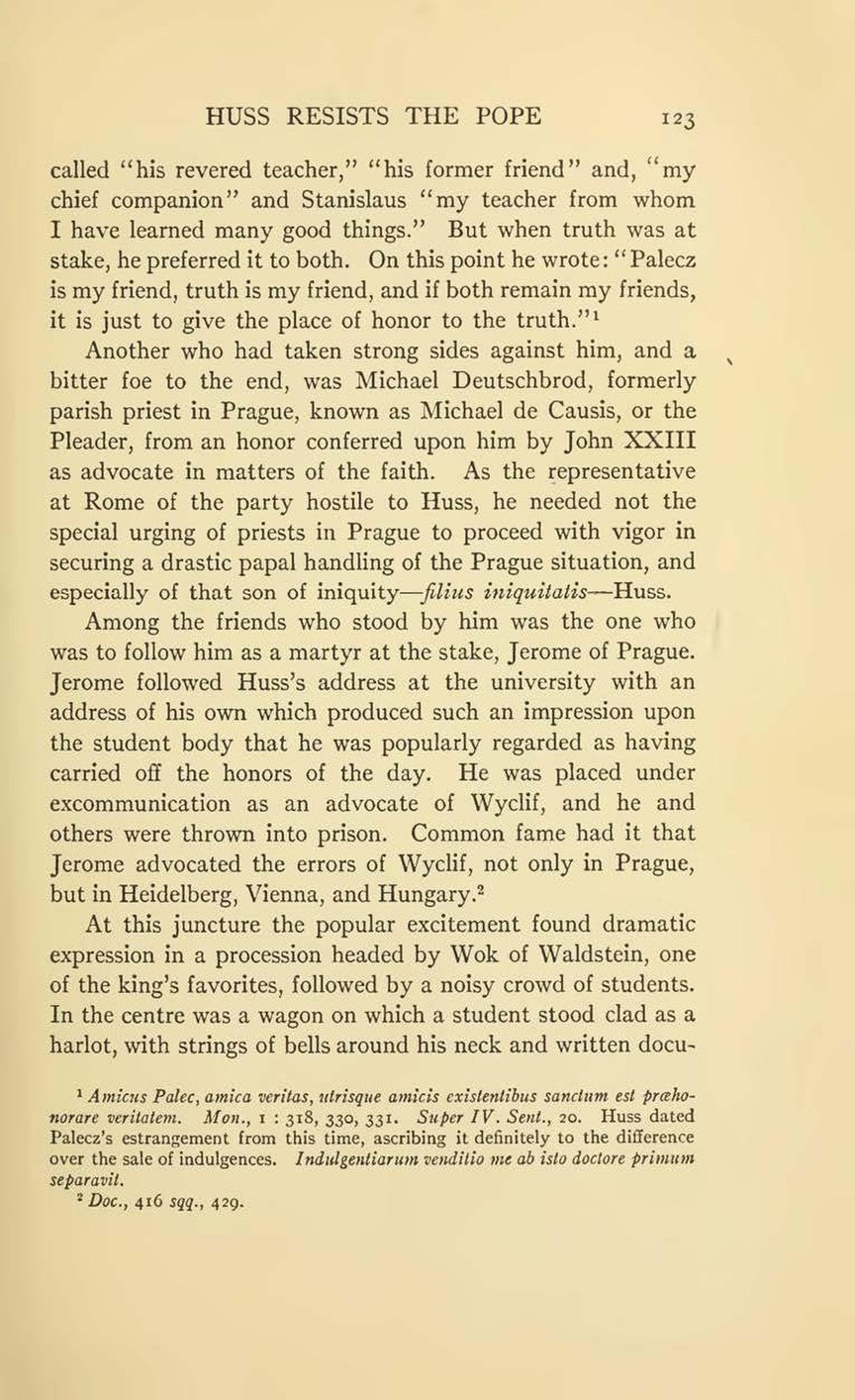called “his revered teacher,” “his former friend” and, my chief companion” and Stanislaus “my teacher from whom I have learned many good things.” But when truth was at stake, he preferred it to both. On this point he wrote: “Palecz is my friend, truth is my friend, and if both remain my friends, it is just to give the place of honor to the truth.”[1]
Another who had taken strong sides against him, and a bitter foe to the end, was Michael Deutschbrod, formerly parish priest in Prague, known as Michael de Causis, or the Pleader, from an honor conferred upon him by John XXIII as advocate in matters of the faith. As the representative at Rome of the party hostile to Huss, he needed not the special urging of priests in Prague to proceed with vigor in securing a drastic papal handling of the Prague situation, and especially of that son of iniquity—filius iniquitatis—Huss.
Among the friends who stood by him was the one who was to follow him as a martyr at the stake, Jerome of Prague. Jerome followed Huss’s address at the university with an address of his own which produced such an impression upon the student body that he was popularly regarded as having carried off the honors of the day. He was placed under excommunication as an advocate of Wyclif, and he and others were thrown into prison. Common fame had it that me advocated the errors of Wyclif, not only in Prague, but in Heidelberg, Vienna, and Hungary.[2]
At this juncture the popular excitement found dramatic expression in a procession headed by Wok of Waldstein, one of the king’s favorites, followed by a noisy crowd of students. In the centre was a wagon on which a student stood clad as a harlot, with strings of bells around his neck and written docu-
- ↑ Amicus Palec, amica veritas, utrisque amicis existentibus sanctum est præhonorare veritatem. Mon., 1: 318, 330, 331. Super IV. Sent., 20. Huss dated Palecz’s estrangement from this time, ascribing it definitely to the difference over the sale of indulgences. Indulgentiarum venditio me ab isto doctore primum separavit.
- ↑ Doc., 416 sqq., 429.
